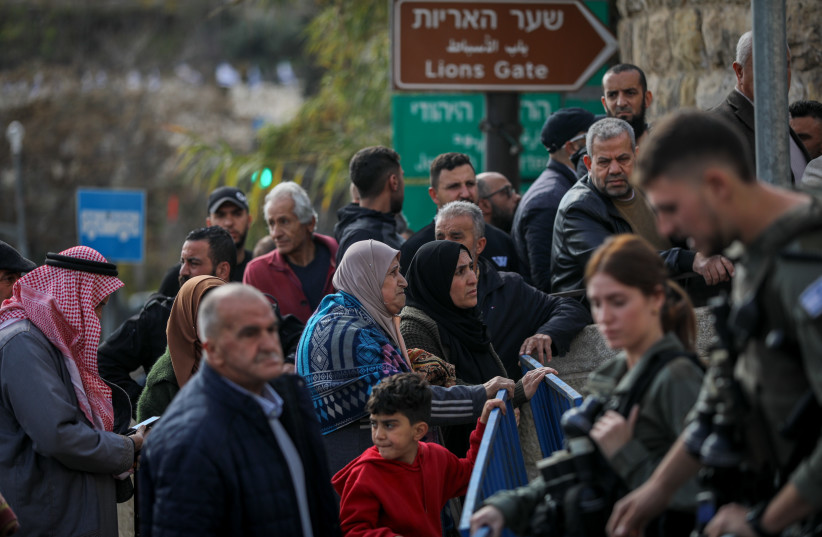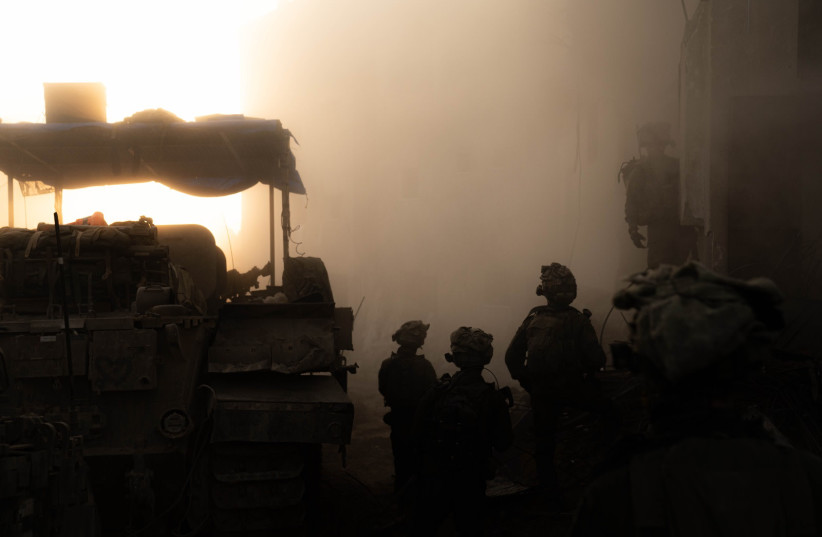A new opinion poll, carried out by the Arab Center for Research and Policy Studies, was published on January 10. The poll, which collected data from 8,000 Arab respondents from 16 countries, aimed to determine how Arab populations perceived the Israel-Hamas war.
Amongst one of the many findings of the survey, it was noted that 67% of respondents perceived Hamas’s October 7 attack, categorized by the survey as “the military operation carried out by Hamas,” as “a legitimate resistance operation.” The survey results clarified that 19% answered that the attack was legitimate but “flawed,” 3% said it was legitimate but “involved heinous or criminal acts” and only 5% called the attack “illegitimate.”
Why did Hamas attack, according to respondents?
While many have seen Hamas’s attack on Israel as a proxy war for Iran, only 2% of respondents agreed, while 35% of Arab respondents stated their belief that the number one reason behind the attack was “The ongoing Israeli occupation of Palestinian land.”
The second most given reason was “Defending al-Aqsa Mosque against attacks,” which 24% of respondents affirmed as their believed reason.
The al-Aqsa Mosque has been a source of tension as it is located above the Temple Mount, a holy site for both Jews and Christians. While non-Muslims now have permission to attend their holy site via the Moors Gate, they are forbidden from praying there which has created increased tension. Jewish activists have repeatedly tried to pray at the site, which has been met with escalating conflict.

While 24% argued that defending the mosque was the most important reason behind the attack, a Hamas rocket would have landed on the holy site in December, if Israel’s Iron Dome system hadn’t prevented the attack.
Only 8% of the respondents felt the “[t]he ongoing blockade of Gaza” was the main reason for the attack, with a further 12% claiming it to be the second most important reason.
Israel withdrew citizens from Gaza in 2005, creating a separate territory that was taken over by Hamas in 2006. Gaza borders both Israel and Egypt, with crossings policed heavily by both countries. Palestinians, before October 7, had been permitted to enter Israel with proper documentation for work, medical treatments or for other reasons.

Arab solidarity with Palestinians and Hamas
In mass agreement, 92% of respondents expressed they had a feeling of solidarity with Gaza’s Palestinian population. In addition, 69% said they supported both the Palestinians and Hamas. Only 1% said they had no feelings of solidarity with the Palestinians and 23% said they had feelings of solidarity for Palestinians but opposed Hamas.
Opinions on international parties
When asked about the responses of regional and international powers to the war, 94% said they considered the United States position negatively, with 82% clarifying they thought it was bad. The same trend continued for other Western countries with 79%, 78%, and 75% of respondents viewed the positions of France, the UK, and Germany negatively.
In a different survey response, 81% said that they did not believe the US was serious about establishing a Palestinian state and 77% of respondents named the US and Israel as the biggest threat to the security and stability of the region.
US Secretary of State Andrew Blinken continued to advocate for a Palestinian state only yesterday, claiming that it was the best way to marginalize Iran.
Additionally, while one May survey found that over half of Palestinians wanted a two-state solution, a November survey by the Arab World for Research and Development found that over 70% of Palestinians support only a singular Palestinian state without a Jewish one.
Arab opinion on Iran, Turkey, Russia, and China was more split, with 48%, 47%, 41%, and 40% perceiving the countries positively.
Normalizing ties with Israel
When asked what steps Arab governments should take in response to the war, 36% of respondents stated that Arab governments should suspend all relations or normalization processes with Israel, and a further 14% said aid should be sent to Gaza without Israeli approval.
A further 29% of respondents suggested that Arab countries should either “provide military aid to Gaza” or “announce military mobilization” against Israel.
